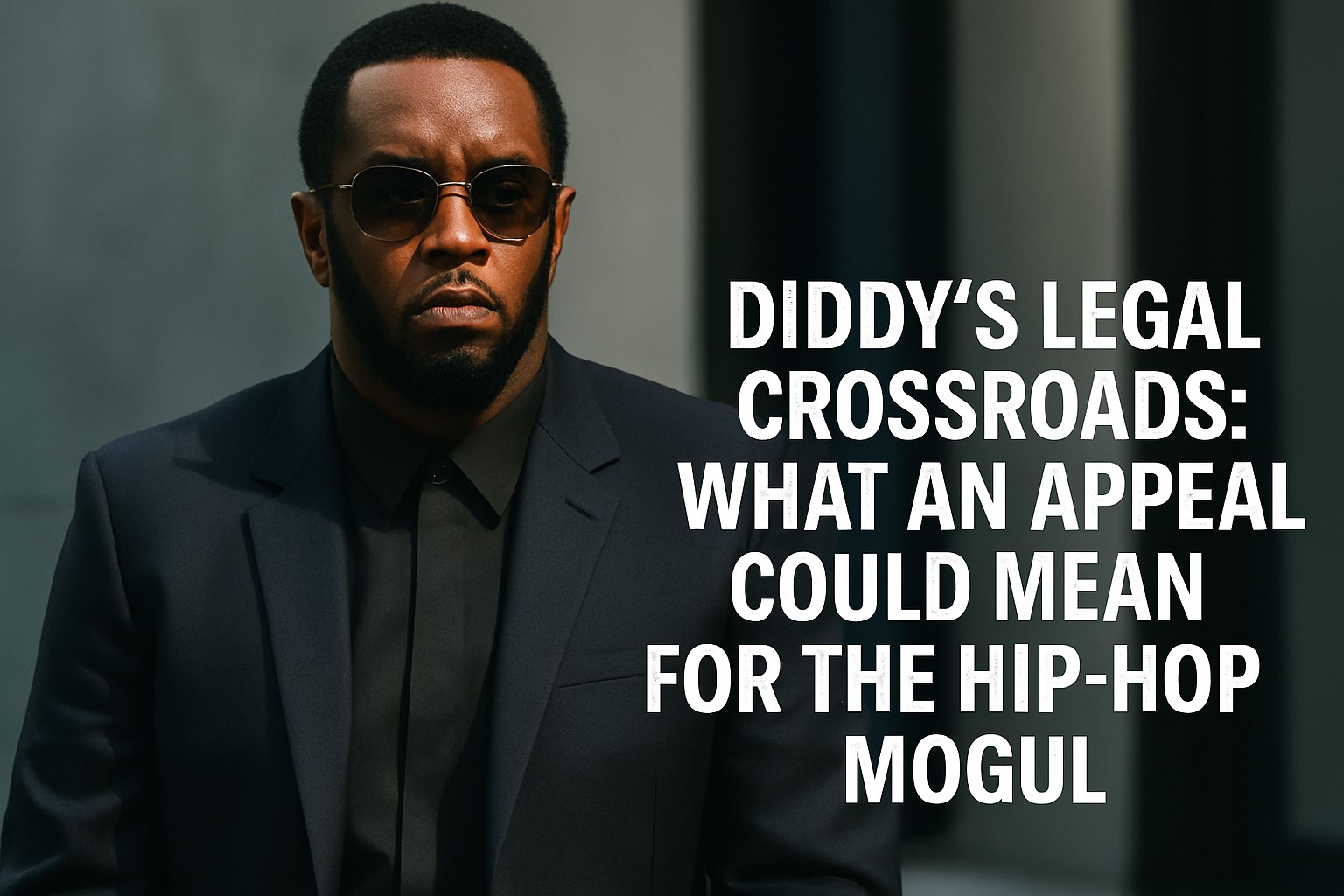
Sean “Diddy” Combs is currently on trial in the Southern District of New York, facing serious federal charges including sex trafficking, racketeering conspiracy, and transporting individuals for prostitution. The trial commenced on May 5, 2025, and has featured testimonies from over 16 witnesses, including former assistants and celebrities. Notably, a former assistant, testifying under the pseudonym “Mia,” alleged multiple instances of sexual and physical assault by Combs during her employment from 2009 to 2017. Combs has pleaded not guilty to all charges.
Current Appellate Pitfalls for the Prosecution
Even as the prosecution presses forward with its high-profile case against Sean “Diddy” Combs, it has already stumbled into territory that raises red flags for any serious appellate attorney.
First, the court allowed testimony from musician Kid Cudi alleging that Mr. Combs orchestrated the firebombing of his Porsche. The defense objected, arguing that the claim was both speculative and dangerously prejudicial. They’re not wrong. Testimony suggesting criminal conduct that isn’t charged, and that lacks corroborating evidence, is precisely the kind of material that appellate courts scrutinize for undue prejudice under Rule 403. If the jury convicts, it won’t be hard to argue that this testimony inflamed the jury rather than informed it.
Second, the trial judge denied a defense request for mistrial after a prosecution line of questioning appeared to insinuate that Mr. Combs destroyed fingerprint evidence. The prosecution posed the questions without producing proof that Mr. Combs had any role in that alleged destruction. While the judge instructed the jury not to infer involvement, the damage may already be done. On appeal, this becomes a fertile argument: that the cumulative effect of prejudicial inferences—especially those unmoored from admissible evidence—undermined Mr. Combs’ right to a fair trial.
Neither of these issues exists in a vacuum. When aggregated with any future missteps—be it in jury instruction, evidentiary rulings, or sentencing—the appellate record begins to take shape. And in a case like this, where reputational and constitutional stakes are both enormous, the defense strategy should be layered: win if possible at trial, but build the record with the appeal in mind.
Appellate Ramifications if Found Guilty
Should Combs be convicted, the appellate process would likely focus on several key areas:
- Evidentiary Challenges: The defense may argue that certain testimonies or pieces of evidence—such as the Kid Cudi testimony and fingerprint questioning—were improperly admitted, potentially violating Combs’ right to a fair trial.
- Procedural Errors: Any missteps in jury instructions or prosecutorial conduct could serve as grounds for appeal.
- Sentencing Disputes: Given the severity of the charges, a life sentence is possible. The defense might contest the length or conditions of the sentence imposed.
An experienced criminal appellate attorney would meticulously review trial transcripts to identify any reversible errors, aiming to overturn the conviction or secure a new trial.
Appellate Considerations if Found Not Guilty
In the event of an acquittal, the prosecution cannot appeal the verdict due to the Double Jeopardy Clause of the Fifth Amendment. However, Combs might still face:
- Civil Litigation: Numerous individuals have filed civil lawsuits alleging sexual misconduct by Combs. An acquittal in criminal court does not preclude liability in civil court, where the burden of proof is lower.
- Reputational Damage: Despite a not guilty verdict, the extensive media coverage and public scrutiny could have lasting effects on Combs’ personal and professional life.
- Compensation for Time in Prison: Unfortunately for Combs, he likely won’t be compensated for his time in prison.
- Civil Claims Diddy Could File: While prosecutors are shielded by absolute immunity, in rare cases a not guilty verdict followed by evidence of government misconduct—such as fabricated evidence or illegal searches—could open the door to a limited civil suit against federal agents or agencies. These cases are difficult and seldom succeed, but they’re not categorically impossible.
In such scenarios, criminal appellate attorneys might become involved if any civil judgments are rendered against Combs, especially if there are questions about the fairness of those proceedings.
What If There’s a Hung Jury?
In the event of a hung jury—where jurors cannot reach a unanimous verdict—the result is a mistrial. This doesn’t end the case, but it does reset the clock in significant ways.
- Prosecutorial Discretion: The government would have to decide whether to retry the case. That decision typically depends on how the jury was split, the strength of the remaining evidence, and public pressure.
- Strategic Shifts: A mistrial often leads to changes in trial strategy. The defense may be emboldened, while the prosecution might narrow its theory or cut witness lists in a second attempt.
- Appellate Involvement: While there’s no conviction to appeal, appellate attorneys might still be involved. For example, if the defense believes the mistrial was caused by prosecutorial misconduct or judicial error, it could move to bar a retrial on double jeopardy grounds.
A hung jury leaves the case in legal limbo—neither a win nor a loss—but it opens the door to some of the most nuanced strategic decisions in criminal litigation.
Conclusion
The outcome of Sean “Diddy” Combs’ trial will undoubtedly have significant implications. Whether navigating the complexities of a criminal appeal or addressing subsequent civil challenges, the role of an appellate attorney will be crucial in shaping the next chapter of this high-profile case.
Image Credit: OpenAI DALL-E
 Law Office of Jason Ostendorf LLC
Law Office of Jason Ostendorf LLC